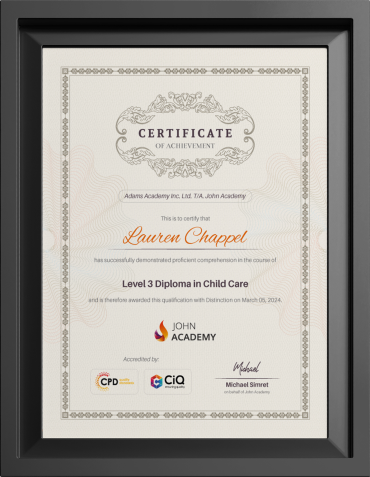
Are you looking to start your career in SEO but don’t know where to start and what to expect? In this article, we are going to tell you everything you need to know about SEO:
- What to expect.
- Work format.
- Required soft and hard skills and places to learn them.
- How to land your first SEO gig.
- The future of the profession.
Ready to learn more about the potential of the SEO career path? Let’s start with what you can expect in this field.
What to Expect from a Career in SEO
Accroding to GlassDoor, the average salary of an SEO expert in the United Kingdom is £31K/y, and as per ZipRecruiter, the median salary of SEO experts in the US is $65k, a fair bit higher than the average American salary of $59k. Professionals in senior positions earn up to $170k per year. While not every SEO specialist will reach these numbers, it proves that with enough expertise and a good bit of business savvy, you can make a bank in SEO roles.
The learning curve is steep since there is a lot to learn in your first days. Plus, the search engines get updates frequently, so things you learn today might become obsolete within a few weeks. This is especially true right now with all the AI shenanigans. One day, pumping out hundreds of AI-generated articles is the golden goose; the next day, it’s a big no-no, and Google slaps your wrist.
Both the boon and curse of this path is its diversity. You can choose pretty much any topic you want to work with: pharma, tech, real estate, cars, games, gambling, dating, gardening, or even go meta and work for an SEO or marketing company.
Unfortunately, this is typically a luxury reserved for middle and senior experts. Entry-level workers typically grasp for straws and frequently end up in places they despise. That is an unfortunate part of the process, but don’t let it discourage you from achieving your SEO dream.
Agency vs. In-House vs. Freelance
When starting an SEO career, there are usually three paths to take: agency, in-house, and freelance. Let’s look at their pros and cons.
Agency
Working within an agency, the expert works with multiple projects at the same time. Most of the time, the projects have zero connection, so you are going to work with a variety of topics. This can be good if you like variety, but it also has the downside of requiring you to work with topics you’re not interested in.
Working with an agency is a safe pick for beginning SEO experts, as you will usually be guided by more senior peers and learn a diverse set of skills. Plus, if you do your work well, you can be sure about your financial security, as most agencies are reliable employers who value their reputation.
However, agency life is not for everyone. Very few senior professionals typically stay in them, looking for opportunities to move to in-house or freelance instead. And those who do decide to stay often transition to leading SEO roles, such as Team Lead and Manager, or cross-skill to become Content Strategy Managers and Digital Marketing Directors.
In-House
In-house SEO professionals work within one company, supporting all of their products and websites. This is a choice of many middle and senior SEO professionals. Working in-house allows you to focus on one thing and gain niche expertise instead of gaining surface knowledge in a variety of topics.
Job security and compensation will vary depending on the company. It usually takes a few tries to find a worthwhile company. However, when you do, you get to kick back and enjoy doing what you do best.
Freelance
The final option is freelance. It is a viable option for middle and senior SEO experts as both a full-time option or a side hustle. Breaking into freelance as a junior expert is an uphill battle, although it isn’t impossible.
The main problems with freelancing are the risk and low financial security. However, the upside is that you get to charge as much or as little as you want, and you get complete freedom as long as you observe your deadlines.
If you decide to go this route, be prepared that SEO won’t be the majority of your work. Instead, you will have to act as a salesperson to persuade new clients to buy your services and as an accountant to keep track of all of your expenses for tools, courses, and more.
Skills to Land Your First SEO Job
To be successful in your SEO career, you will need to grab a number of soft skills, as well as job-specific.
Soft
These are general skills applicable to any kind of job. Here are the personal qualities you need to develop to ensure a prosperous future wherever you go:
1. Communication. You will have to talk to people to convey SEO strategies to clients and collaborate with team members to make sure everyone is on the same page.
2. Adaptability and constant learning. Search engine algorithms and best practices frequently change, so you need to be quick on your feet.
3. Analytical thinking. SEO is full of complex data required for informed decision-making.
4. Creativity. Content ideas and innovative ways to improve search rankings will be your bread and butter.
5. Problem-solving. Necessary for fixing SEO issues, such as sudden traffic drops or ranking fluctuations. An SEO audit is crucial in identifying and addressing these issues effectively.
6. Time management. Time is money. Do we need to say more?
Hard
These are specific SEO skills that are exclusive or almost exclusive to this career path:
- Keyword research. The fundamentals.
- On-page optimization. Essential for ensuring that individual web pages are structured and written to rank for targeted keywords.
- Technical SEO basics. Necessary to ensure websites are crawlable, indexable, and free of technical problems.
- Content creation and optimization. High-quality content is a primary ranking factor for search engines. You don’t need to write it yourself, but you need to have a critical eye.
- Link building strategies. Writing guest posts is the first step, and you can already do this for your own website. You’ll learn how writing specific recommendations for platforms like parenting blogs that accept guest posts can boost your own website.
- SEO tools. Start with the basics, like Google Search Console and Ahrefs.
- Basic HTML and CSS. Useful for making minor website adjustments without always relying on web developers.
- Data analysis and interpretation. Measure the success of your work and adjust accordingly.
- Digital marketing basics. Important to understand how SEO fits into and complements overall digital marketing strategies.
Where to Learn
That’s a lot to handle! We’ve already linked to our article about soft skills, so let’s talk more about hard ones.
- Blogs. If you prefer reading, blogs like Moz, Search Engine Journal, and Ahrefs offer in-depth articles, case studies, and how-to guides.
- Videos. Visual learners will appreciate channels like Neil Patel, Brian Dean, and Wes McDowell all share their SEO expertise on their channels.
- Conferences. Attending SEO conferences, such as MozCon, SMX (Search Marketing Expo), or BrightonSEO, provides a valuable opportunity to learn from industry leaders and network with peers.
How to Find Your First Job
Landing your first SEO job is always the hardest. It’s not the 70s anymore, so you won’t be able to get a job simply by walking into a business with a printed-out resume and giving the owner a firm handshake. In today’s market, especially in digital professions, you’ve got to show you have at least some skills from the get-go.
Many people don’t start with SEO but come to it from different professions: content marketing, outdoor promotion, statistics, and more. Whatever your experience is, make sure you note it in your resume.
If you are fresh out of school or college, make sure to include any extracurricular activities you did that could give you an edge over other applicants. Even something simple like writing for a school gazette can be seen as beneficial since it already gives you some understanding of creating content. Some universities also offer specialized clubs for SEO, marketing, etc.
One effective method to get and show off your skills is writing your own blog, preferably about SEO, and optimise it for search engines. This allows you to showcase your knowledge and establish yourself as a thought leader early, practice your skills, and get something to kickstart your portfolio. Plus, you always learn more by teaching someone, so this is a good opportunity to learn more.
With these things ready, find an entry-level position, get ready for an interview, and may the luck be ever in your favour. Almost nobody lands a job on the first try, so don’t get discouraged and try until you succeed while learning more in the process.
The Future of Careers in Search Engine Optimization
SEO remains a stable career and a desirable position in most industries. SEO is a relatively cheap way to gain organic traffic — and businesses recognize this. Unless all search engines suddenly implode, your job security in SEO is very high.
In the nearest future, your skill set might need additional diversification. For example, you might soon need to learn how to optimize for AI and ML models of search engines to get into things like Gemini’s generated answers. Voice recognition is also becoming a more popular way to search, and new methods might arise to optimize it.
Whatever the trends will be, one thing is certain — you won’t be bored with SEO in the future.


